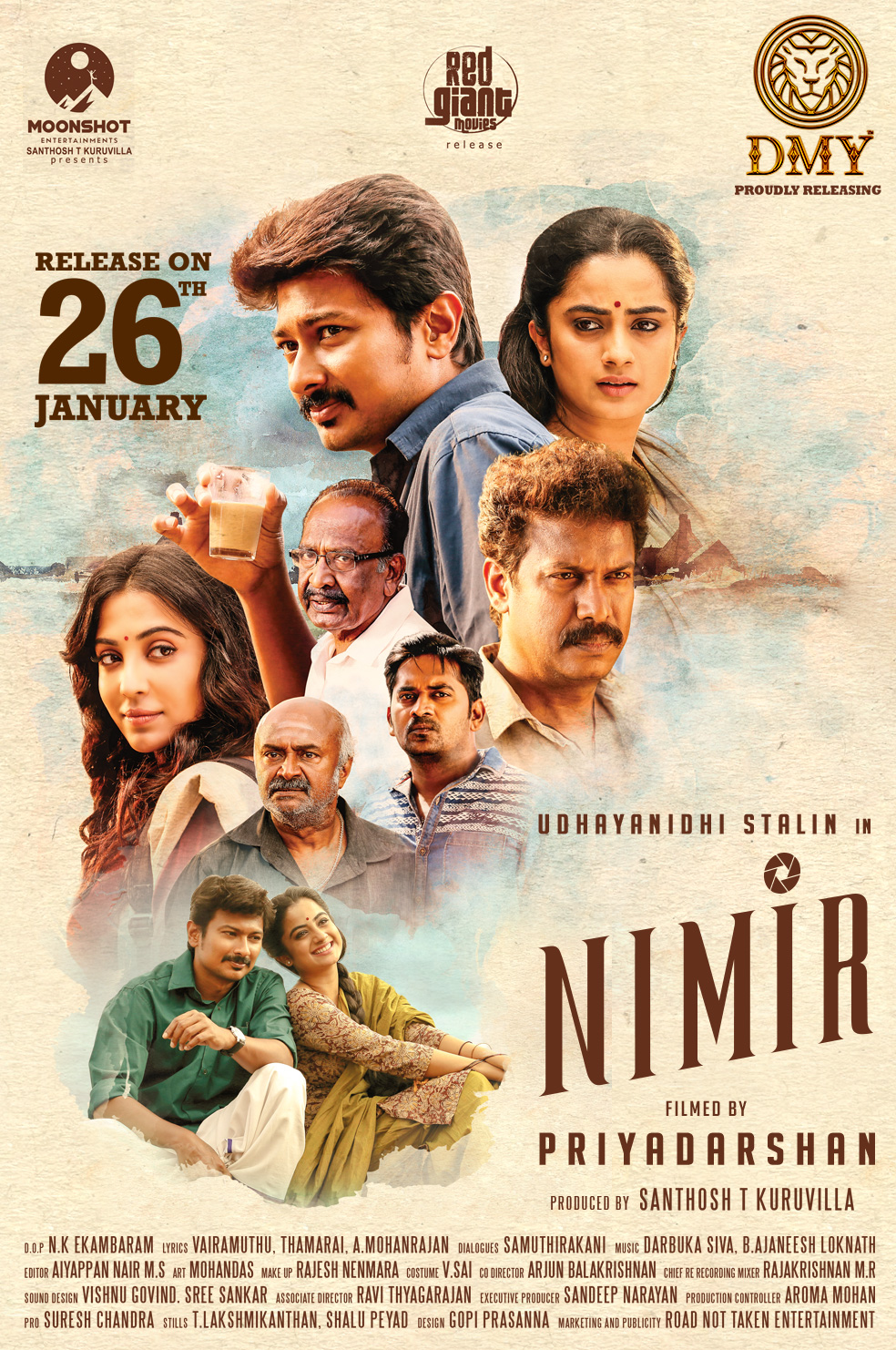


| cast | : | Udhayanidhi Stalin, Namitha Pramod, Parvathi Nair, J.Mahendran, Samuthirakani, Karunakaran, M.S.Bhaskar |
| director | : | Priyadarshan |
| music director | : | Darbuka Siva - B.Ajaneesh Loknath |
| production | : | Moonshot Entertainments |
| language | : | Tamil |
| country | : | India |
| subtitle | : | English |
| classification | : | P13 |
| genre | : | Drama,Comedy |
| running time | : | 130 minutes |
| release date | : | 26-01-2018 |
| format | : | 2D |
Nimir Synopsis: An amiable photographer in a small-town, who is nursing a breakup, unwittingly becomes embroiled in a street brawl that turns him into a man obsessed with revenge.
Nimir Review: Dileesh Pothan’s Malayalam film Maheshinte Pathikaram, which has now been remade as Nimir, was about a man and his thirst for revenge, and if that plot makes you imagine a tense thriller, you would be far off the mark. For, it was a low-key feel-good tale about a man and his revenge. On the other hand, there is hardly anything to feel good about Nimir, which comes across as a rather flavourless, uninvolving tale.
The warning signs go off right in the very beginning, when the film begins with a song whose focus is not its lead character or the place (as in the original), but a village belle who vanishes once the song ends. We are introduced to Selvam, who runs a photo studio in a small-town, and the people in his life — his seemingly absent-minded father (Mahendran), Sadha (MS Bhaskar), the shopkeeper next-door and a friend-cum-father-figure, Vigadakavi (Karunakaran), Sadha’s employee, the local politician (Aruldoss) and Valli (Parvatii Nair), Selvam’s girlfriend. Selvam’s seemingly uncomplicated life takes a turn for the worse when Valli decides to marry the guy her parents have chosen for her. And he accidentally gets involved in a street brawl that ends with him losing face and swearing revenge.
There is a scene in Nimir, where Selvam’s father teaches him that photography is all about the moment. This applies to cinema as well, and it’s what’s missing here — timing. Even a terrific stretch (on paper, that is) which involves a fight between two individuals in one part of the town having a cascading effect that ends in Selvam’s embarrassment lacks the rhythm that it needs to make us marvel at how wonderfully the script exploits Butterfly Effect.
Priyadarshan fails to convincingly establish the relationships between the various characters and the milieu. The largely functional performances don’t help (Udhayanidhi tries, but it isn’t enough), and we never become emotionally involved with the characters, including Selvam. For the most parts, there is no energy in the scenes to keep us engaged. Perhaps those who haven’t seen the original might find it tolerable, but make no mistake, the film only coasts along on the suspense in the plot — will Selvam have his revenge? — and the understated humour in the situations.
.jpg)
.jpg)
.jpg)
.jpg)
.jpg)
.jpg)
.jpg)
.jpg)
.jpg)
.jpg)
.jpg)

